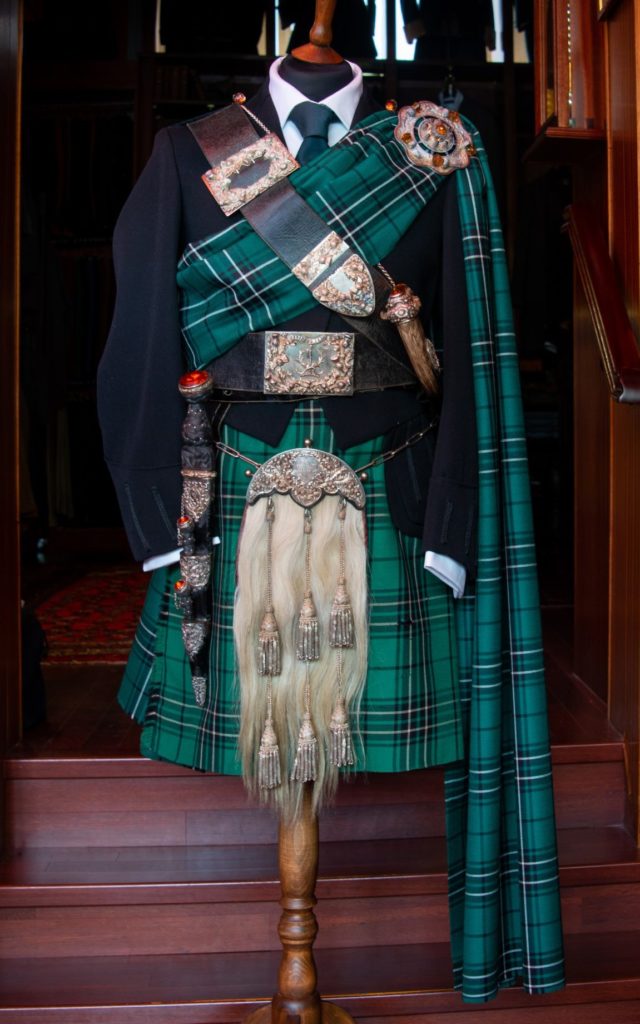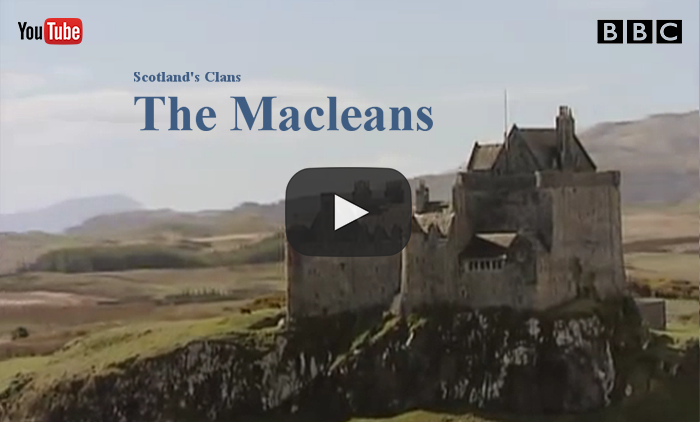An ancient family, the Clan Macleans’ history is as long as it is rich and colorful. Sir Allan Maclean famously said, “Ged tha mi bochd tha mi uasal; buidheachas do Dhia is ann de Chlann ‘Ill Eathain mi,” translated from Scots Gaelic, “Though I am poor, I am noble; thank God I am a Maclean”—a sentiment that echos throughout the ebb and flow of Maclean history.
The Clan Maclean takes its name from its first chief, Gilleain na Tuaighe.1 When anglicized, the means “Gillean of the Battle-Axe.“ The first name “Gilleain” means “the Servant of [St.] John;” in Scots Gaelic the prefix “mac” means “the son of” thus Maclean literally means means “Children of the Servant of [St.] John,”2 or the “Children of Gilleain.”
Although the certainty of ancient origins from which the Clan Maclean descended are lost to history, the clan’s senachies, or historians, have maintained traditional claims of descent from Loarn mac Erc, King of Dálriata,3 and the Cenél Loairn (Lorn kindred).2 Erc is traditionally regarded as the ancestor of the Kings of Scotland.4
The Maclean Chiefs trace their lineage with confidence as far back Gillean’s 5th great-grandfather, Old Dugald of Scone.1 Born around 1050, during the reign of Macbeth, Dugald of Scone served as a Judex (or Judge) and was believed to be a Councillor to David I, King of Scots. With far less certainty, the last senachie of the Clan Maclean, Dr. Beaton, traces the linage further back, identifying Gillean’s 34th great-grandfather as Àengus Turmhi-Temhrac, a King of Dál Cuinn believed to have lived in 384 BCE.

Eras of Maclean History
4th Century BCE — 13th Century
13th Century — 14th Century
14th Century — 15th Century
17th Century — 18th Century
18th Century — 19th Century
20th Century — Present
—
—
—
—
—
—

